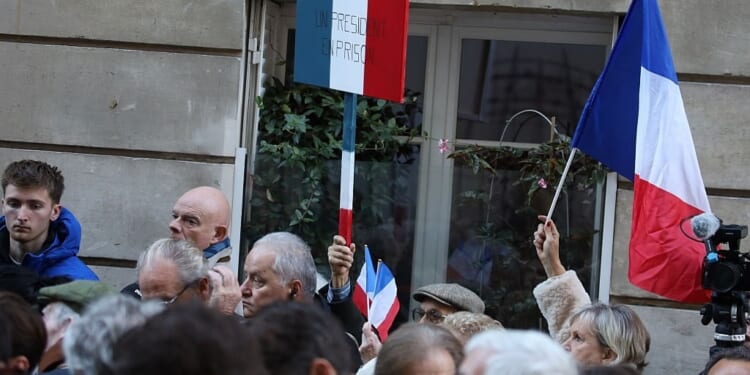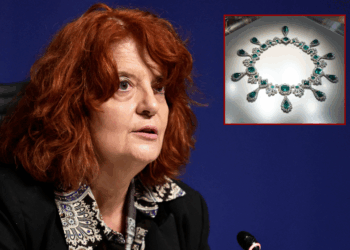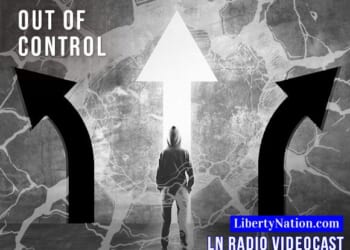The self-adorned “defenders of democracy” are making it awfully hard for the average citizen in Europe to believe in the concept anymore. In France, public discontent with its entrenched ruling government is nearing a total consensus point. Meanwhile, across the water in Ireland, disgusted voters have rallied around a novel way to express their growing lack of faith against an electoral system they believe has been rigged against them.
“French democracy is ailing, and its ills are manifold,” reads the stark opening sentence to big-box newspaper Le Monde’s October 21 editorial detailing results of its 13th annual “French Fractures” survey conducted by polling firm Ipsos. “In 2025, after months of political instability, the latest edition’s results show an increase in distrust, despair, pessimism about decline and a desire to oust the political class,” the firmly establishment paper uncomfortably noted.
Nobody Likes Us So Let’s Control the Response
What else could it say? After all, it’s hard to spin numbers so overwhelmingly damning. “According to the survey, 96% of respondents reported feeling dissatisfied or angry about the state of the country,” the editorial continued. Deeply unpopular President Emmanuel Macron’s “second term has left part of the French public disillusioned, with many indicators having sharply declined over the past three years,” Le Monde observed. “Today, 90% of those surveyed believed the country was in decline, whereas the same indicator stood at ‘only’ 75% in 2022.”
You know things are bleak for the progressive ruling establishment when its leading face in Europe’s second-largest country has a 75% public disenchantment statistic serve as a benchmark that has been eclipsed.
Over in Ireland, things may be even worse. Self-proclaimed socialist Catherine Connolly on October 24 easily won the election held to select a new president. Connolly took a stunning 63.4% of the vote. That sounds impressive until you realize she trounced two thoroughly lackluster candidates from the nation’s two largest established parties, and that she was the only independent candidate allowed to appear on the ballot.
Connolly represents no real change. She replaces another leftist in the post, Michael D. Higgins, who has served since 2011. The only dynamic element to the outcome came in the form of a grassroots “Spoil the Vote” initiative conducted by Irish citizens who felt they had no one representing them on the ballot.
Once again, the progressive ruling press could not ignore the phenomenon.
“Early tallies suggest a huge number of spoiled votes have been cast nationwide. In some boxes, more than 20% of votes have been spoiled,” Irish public radio broadcaster RTE reported October 25. “In most recent elections, spoiled or invalid votes have made up less than 2% of all ballots.”
How could this have happened? The answers are disconcerting to say the least for a government media outlet to contemplate.
Enjoy Your One Independent Candidate, Voters
“The ‘Spoil The Vote’ campaign was ‘founded in response to growing public concern about the lack of genuine choice in the forthcoming presidential election,’” RTE states, quoting a leading website pushing the effort. The site pointed out that “only one independent, left-leaning candidate – Catherine Connolly – has been permitted onto the ballot, leaving no centrist or center-right candidate to represent a significant portion of the electorate.”
RTE further acknowledged that the campaign was greatly driven by Irish citizens outraged by the government’s embrace of massive immigration to the nation of 5.3 million people. RTE also seemed more than a tad disturbed by how the drive was able to organically mushroom online.
“While many voters who chose to spoil their vote may have been unaware of the campaign, the group’s campaign narratives were pushed through the large social media accounts and online presences of key individuals involved,” RTE wrote.
RTE would be the same Irish state broadcaster, by the way, that has published multiple opinion pieces and news items expressing enthusiastic support for the European Union’s attempts to censor the Internet via its Digital Services Act. Just a coincidence, no doubt.
That Is Not Democracy
Fellow big-box media outlet The Irish Times on October 28 reported updated numbers that showed “close to 13% of the total ballot [was] deemed invalid.” “There were 213,738 invalid votes, the highest number in a modern Irish election, as many voters expressed anger and frustration at the choice of candidates on the ballot and the exclusion of others.”
The Times’ published reader statements about why they chose to spoil their ballots. While the word “immigration” was transparently downplayed, the published reaction nonetheless provides a window into the scale of distrust of the electoral process among the Irish people.

“I could not vote for the [major party] Fine Gael candidate because Simon Harris actively blocked anybody else getting on to the ballot paper,” Josephine Phelan of County Laois told the paper.
“I thought that the main political parties blocked potentially good candidates from being added to the ballot. I did not feel my political views were in any way at all represented,” Mícheál Ó Flaithearta of Galway exclaimed.
“Government are out of touch. We should have had a bigger field of candidates. The government stopped this happening. That is not democracy,” Declan Roche of Dublin declared. “Immigration, housing and cost of living is what occupies a lot of people. When are we going to have an honest discussion on these matters?”
That’s a question being asked by voters throughout Europe and the rest of the Western world. Instead, they’re repeatedly fed vapid phrasing about how “democracy is on the ballot” by the very same governing officials who refuse to allow serious consideration of the issues most important to the people they claim to represent.
Defining acceptable options and anointing your own opposition is of course an old political establishment trick. It is regularly seen in nation after nation, including the US. How many times did Mitt Romney and friends “disqualify” Donald Trump? It’s all about safe ventilation. When your policies have become so unpopular as to earn a backlash, steer the rebuke in ways that can be digested by the system.
But it comes at a high price that must eventually be paid. Such naked chicanery serves as an acid slowly eating away at public trust. When things inevitably reach the point where citizens no longer believe elections represent the “will of the people,” they’re not going to tolerate the credentialed figures who keep foisting such charades upon them.

















